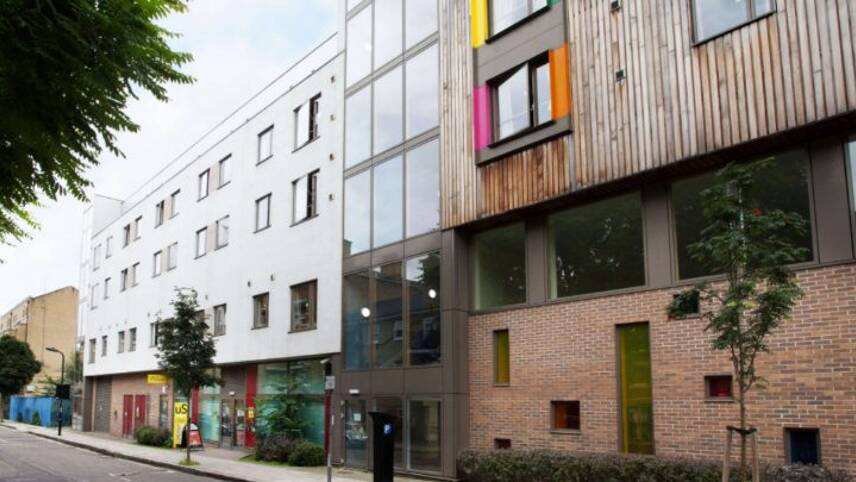Register for free and continue reading
Join our growing army of changemakers and get unlimited access to our premium content

Pictured: Unite Students' Somerset Court development in Euston
Unite Students has this week confirmed new emissions reductions targets, verified by the Science-Based Targets Initiative (SBTi) in line with 1.5C, as well as plans for delivering the necessary cuts to greenhouse gases.
The real estate investment firm’s SBTi-approved goals entail cutting Scope 1 (direct) and Scope 2 (power-related) emissions by 56% by 2030, against a 2019 baseline.
Plans for delivering this scale of emissions reduction include procuring more renewable electricity. Around 61% of Unite Students’ electricity consumption this year will be from renewable sources, and the firm will increase that to 100% by the end of the decade. Unite Students has signed up to The Climate Group’s RE100 initiative and has stated that it is actively looking to sign more power purchase agreements (PPAs) and to add more onsite arrays to help expand generation capacity in the UK.
Additionally, there are plans to reduce the energy intensity of the Unite Students estate by 28% by 2030, against a 2019 baseline. The company claims this target is also 1.5C-aligned and is using the Carbon Risk Real Estate Monitor (CRREM) pathway as its verification framework. A mix of built-in solutions, like energy management technologies, will be deployed alongside behaviour change and engagement schemes.
Overall, Unite Students will invest £10m annually in energy initiatives this decade, up from £5m annually between 2014 and 2021.
Beyond the overarching targets to reduce operational emissions, the company’s in-house energy and environment team has developed individual decarbonisation pathways for each of its 173 properties across the UK.
Indirect emissions
Also detailed in the science-based targets is an ambition to reduce Scope 3 (indirect) emissions from capital goods, on an intensity basis, by 22% by 2030. Again, there is a 2019 baseline year.
Separately, through RIBA’s Climate Challenge programme, Unite Students has committed to reduce embodied carbon by 48% within the same timeframe.
The company is developing a new Sustainable Construction Framework to help deliver this ambition. It will detail new standards for site selection, building materials, optimising designs and improving efficiency on construction sites.
The need to measure and reduce embodied carbon has been one of the built environment sector’s priorities, sustainability-wise, this year. The UK Green Building Council (UKGBC) recently unveiled its much-anticipated Whole Life Carbon Roadmap to help address this issue. A recent report from the World Business Council for Sustainable Development found that less than 1% of building projects currently account for lifecycle carbon impacts, with embodied carbon being a common omission.
Unite Students’ head of energy and environment James Tiernan said the publication of the net-zero pathway is “an important milestone”, bringing together “ tangible targets and more granular detail our stakeholders need to understand where we are currently, as well as the direction of travel”.
Tiernan was notably the winner of edie’s Energy Management Leader of the year at the 2019 Sustainability Leaders Awards.
Sarah George


Please login or Register to leave a comment.